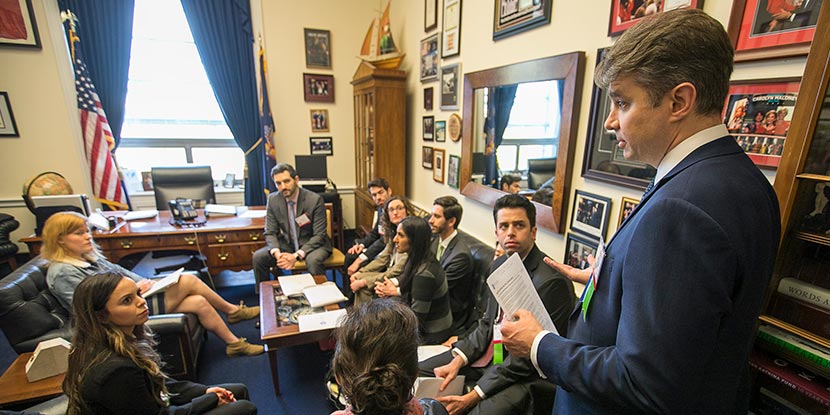Surprise Billing

One of the hottest issues in D.C. this summer is the bipartisan interest in bringing an end to surprise medical bills for patients. In February, the Academy joined the AMA and more than 100 specialty and state medical societies and other health care organizations to send a letter to congressional leaders (PDF 30 KB) detailing our principles for legislation that would protect patients from costs their insurance will not cover.
Unfortunately, some of the proposals coming out of Congress are unfair to physicians, threatening medicine with terrible precedents. These proposals would benchmark out-of-network payments to the “median in-network” rate for a geographic area. This gives too much power to health plans to set these rates, with little incentive for them to expand their networks to include more physicians.
We’re supporting an alternative proposal that would shield patients from unexpected out-of-network costs while ensuring physicians’ fair reimbursement. Congress’ physician members, including Reps. Raul Ruiz, MD, D-Calif., and Phil Roe, MD, R-Tenn., authored the bill.
The alternative legislation would address this issue by giving providers a pathway to arbitration with insurance companies to determine appropriate reimbursement levels. We believe this is the only way to prevent access shortages of specialists like ophthalmologists who voluntarily make themselves available to cover emergency treatment.
The Protecting People from Surprise Medical Bills Act would make the following reforms:
- Ban the practice of billing patients for unanticipated out-of-network care (patients would only be responsible for in-network cost-sharing).
- Implement an arbitration model that identifies a reasonable payment rate when insurers and providers cannot agree on the cost of care.
- Improve transparency by requiring health plans to clearly identify in-network providers and patients’ deductibles.
The proposal faces an uphill battle in committee. Still, because the bill proposes an arbitration model, it is receiving widespread support among physician organizations, including the Academy, the American Medical Association, the American College of Emergency Physicians and the American Society of Anesthesiologists. This model is similar to one that New York state adopted in 2015. If providers and insurers cannot agree on a payment rate, they can engage in an independent dispute resolution process.
Under that process, insurers and out-of-network providers each identify a cost for the patient’s care, and a neutral arbiter chooses the fairer price. This model creates an incentive for both parties to choose reasonable numbers to cover the cost of treatment. According to a 2018 study, out-of-network bills in New York declined 34% just three years after the state passed arbitration legislation.